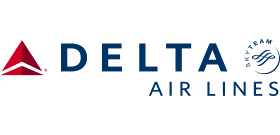 AI Pricing Sparks Debate: What Africa’s Aviation Sector Must Know About Delta’s Revenue Management E
AI Pricing Sparks Debate: What Africa’s Aviation Sector Must Know About Delta’s Revenue Management E
A seemingly routine update from Delta Air Lines in July has ignited one of the most talked-about discussions in aviation this summer, raising critical questions about the future of airline pricing and the role of artificial intelligence (AI) in revenue management. The airline’s president, Glen Hauenstein, revealed that Delta is testing AI-driven pricing tools developed by the startup Fetcherr on a portion of its domestic network. What followed was a wave of headlines suggesting that Delta might be using AI to set ticket prices based on individual passenger data—a claim that quickly drew the attention of regulators and lawmakers.
U.S. regulatory authorities, led by Transportation Secretary Sean Duffy, responded swiftly, warning that any airline using AI to tailor prices to individual consumers’ “pain points” would face investigation. Three U.S. senators also sent a formal letter to Delta, demanding clarity on how the AI algorithms function and assurances that personal data is not being exploited to inflate fares. This regulatory scrutiny reflects broader concerns about fairness and transparency in an era when travel costs are under intense public and political examination.
Delta’s leadership has been unequivocal in its rebuttal. The airline insists that it does not—and has no plans to—use AI to offer individualized fares based on personal data. Instead, Delta emphasizes that its AI tools are designed to enhance traditional dynamic pricing models, which adjust fares based on aggregated market factors like supply and demand rather than on passenger-specific information. This distinction is crucial, as it frames AI as a means to improve efficiency and responsiveness rather than to engage in discriminatory pricing.
Despite these clarifications, the debate has persisted. Delta’s senior vice president, Bob Somers, reiterated the airline’s position during corporate briefings and at its August Showcase event, labeling the controversy as misinformation. Yet, the discussion has sparked a wider industry conversation about the implications of AI in airline pricing, especially for corporate travel buyers and regulators.
Industry reactions have been mixed but largely pragmatic. Many corporate travel managers appear unfazed, viewing AI as an evolution of existing pricing tools rather than a radical departure. Consultant Colleen Kearney described AI as “just a new tool to do the same thing that’s already been done, maybe more efficiently or more precisely.” Meanwhile, experts like Suzanne Boyan from ZS welcomed AI’s potential benefits, provided that airlines maintain transparency and fairness—both essential for sustaining long-term partnerships and trust.
However, cautionary voices are growing louder. April Bridgeman of Advito highlighted concerns not about privacy per se, but about the predictability of fares. AI’s ability to dynamically adjust prices across different booking channels, devices, or even based on search behavior could complicate fare benchmarking for corporate travel programs. While this data may not be “personal” in the traditional sense, it nonetheless challenges the transparency that buyers rely on to manage costs effectively.
Adding complexity to the debate, Gee Mann from TravlrID raised the possibility of AI-driven “collusion.” Research in simulated markets suggests that competing pricing algorithms can, without explicit coordination, settle into patterns that effectively cooperate to keep prices high. Without clear regulatory frameworks or audit mechanisms, it becomes difficult to discern whether prices reflect genuine competition or algorithmic alignment favoring suppliers.
The current situation echoes the industry’s experience with the IATA New Distribution Capability (NDC) rollout a decade ago. Back then, fears about privacy breaches and fare increases were met with promises of greater personalization and efficiency. While progress has been slower than anticipated, NDC and continuous pricing models have gradually reshaped airline distribution. AI now accelerates this transformation, pushing the industry toward more flexible, but also more opaque and less predictable, pricing structures.
For Africa’s aviation and travel sectors, these developments carry important lessons. AI is not inventing dynamic pricing—it is scaling its complexity and speed. As African airlines and travel businesses increasingly adopt advanced technologies, the challenge will be to balance innovation with transparency, fairness, and regulatory oversight. Ensuring that AI-driven pricing tools serve both commercial goals and consumer trust will be vital for sustainable growth in the continent’s aviation markets.
Moreover, as African carriers expand their international reach and compete with global players, understanding the evolving landscape of AI in revenue management becomes essential. The continent’s travel industry professionals must stay informed about these technological shifts, advocate for clear regulatory frameworks, and prepare for a future where pricing strategies are more sophisticated but also demand greater scrutiny.
Ultimately, the Delta-Fetcherr episode is a microcosm of a broader transformation sweeping the airline industry worldwide. It underscores the need for vigilance, dialogue, and collaboration among airlines, regulators, and buyers to harness AI’s benefits while safeguarding fairness and transparency—principles that resonate deeply with Africa’s growing and dynamic travel ecosystem.
